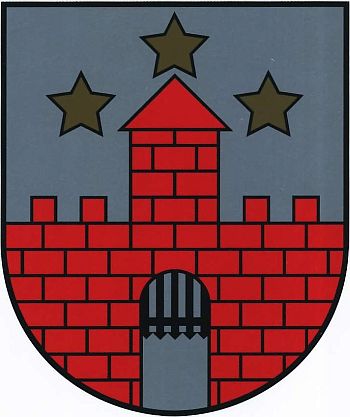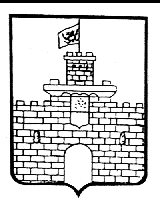Aizpute (town): Difference between revisions
Knorrepoes (talk | contribs) m (Text replacement - ".jpg|center]] ====Official blazon====" to ".jpg|center|Arms of {{PAGENAME}}]] ====Official blazon====") |
Knorrepoes (talk | contribs) m (Text replacement - ".gif|center]]" to ".gif|center|Arms of {{PAGENAME}}]]") |
||
| Line 16: | Line 16: | ||
Aizpute got new arms in 1850: a castle gate with tower and Russian flag, see below. | Aizpute got new arms in 1850: a castle gate with tower and Russian flag, see below. | ||
[[File:aizpute2.gif|center]] | [[File:aizpute2.gif|center|Arms of {{PAGENAME}}]] | ||
After the independence of Latvia the arms were changed in 1925: gate and tower remained, but the flag was replaced with three stars of the National Arms. | After the independence of Latvia the arms were changed in 1925: gate and tower remained, but the flag was replaced with three stars of the National Arms. | ||
Revision as of 16:46, 29 October 2016
Template:Latvia AIZPUTE TOWN
Region : Kurzeme
Municipality : Aizpute
Official blazon
Sudraba laukā sarkans robots ķieģelu mūris ar torni un atvērtiem vārtiem ar paceltu režģi, virs tā trīs (1/2) zelta piecstaru zvaigznes.
Origin/meaning
The arms were granted in 1925.
Aizpute is known since the 13th century as a castle in the land of Kurši. After the conquest of Kurzeme it was divided between two states: the Teutonic Order and the Kurzeme diocese. Aizpute, called then Hasenpoth in German, became the capital of the diocese. Town rights of Aizpute are first mentioned in 1378. The first arms were mentioned at the same time. These showed a monk or saint with a rosary.
Aizpute got new arms in 1850: a castle gate with tower and Russian flag, see below.
After the independence of Latvia the arms were changed in 1925: gate and tower remained, but the flag was replaced with three stars of the National Arms.
Contact and Support
Partners:
Your logo here ?
Contact us
© since 1995, Heraldry of the World, Ralf Hartemink 
Index of the site
Literature : Latvias ģerboņi, 2008











